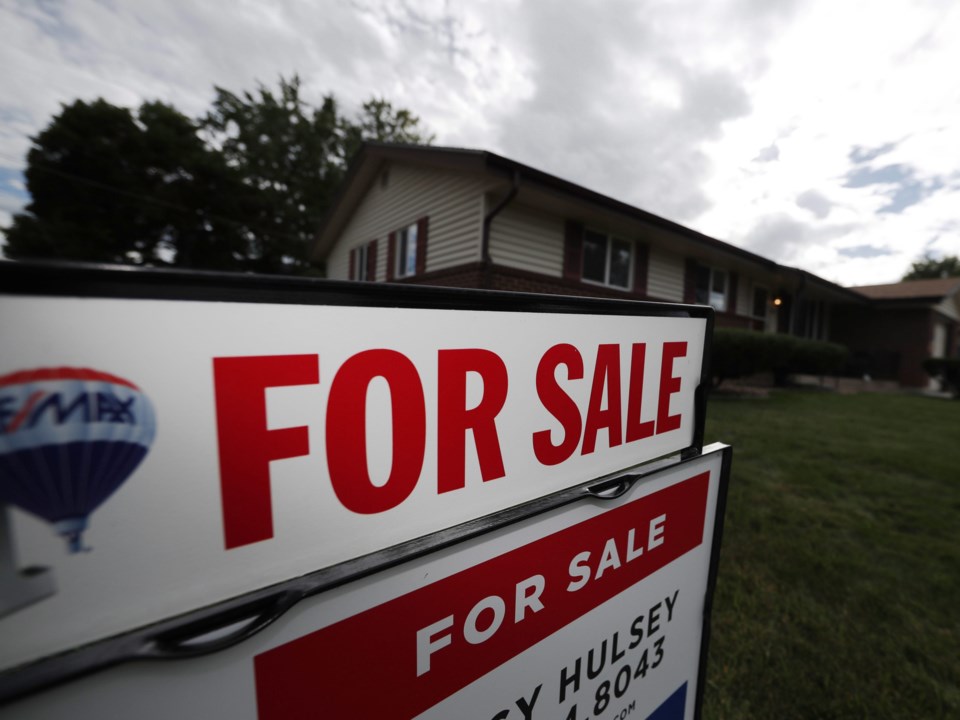With the increase of real estate prices showing no sign of stopping, folks in Longmont considering buying a home might be inclined to wait.
But to Kyle Snyder, account executive at the First American Title, the ever-increasing prices means they should be buying now. With Colorado’s population expected to grow by 47% by 2040, he doesn’t think demand for housing in Longmont or the state will ebb anytime soon.
“Things are going to get more expensive, and Colorado’s just not going to allow building to happen that fast,” Snyder said.
Last month, the median sales price for a single family home in Longmont was $615,000, up 25.7% from the same month last year, according to data compiled by Snyder. Attached dwellings saw a median price of $480,000, up 25.3%.
Despite the rising prices, Longmont remains far more affordable than Boulder, where the median sales price for a single family home was $1.4 million last month, according to Snyder’s analysis.
“The more expensive Boulder becomes, the more attractive Longmont becomes because it’s a third the price,” he said.
Snyder advises renters to start looking into home buying as an investment. According to the U.S. Census Bureau, from 2016 to 2020, the median of monthly costs for homeowners with a mortgage was $1,778 in Longmont compared to a median gross rent of $1,437.
“Every month when you pay your rent, you get nothing in return except for a place to live,” Snyder said. “You’re there for a year; you don’t build any equity. But it comes with a tradeoff.”
He cited the costs of things like yard work, repairs and other burdens that come with homeownership.
Another hesitancy he sees in younger people, with memories of the 2008 recession, is their fears of a similar circumstance coupled with a lack of understanding about homeownership.
“I’ve found they don’t understand the ins and outs of mortgages and how it builds wealth,” Snyder said. “They grew up in a time where their parents or their parents' friends were getting foreclosed on and evicted from their house. It creates sort of a fear of having that burden of a house.”
He argued that the current real estate market is different from the one leading up to the recession, which was spurred by speculatlation. Now, Snyder said, people have lots of equity and there’s a stronger demand for homes from those who can afford it even as interest rates rise.
There were 84 single family homes sold in Longmont in March compared to 100 in March 2021. Single family homes spent an average of just 20 days on the market, down from 29 days in March last year.
There have been 200 homes in Longmont sold year to date, compared to 240 in the same time last year. First quarter sales have seen ups and downs over the last eight years, but remain strong, ranging from 198 sales in 2017 to 287 in 2020, according to Snyder’s analysis.
Even if things do decline, he points to the recovery real estate saw following the worst recession since the Great Depression.
“Back in 2008, I bought my house at damn near the top of the market,” Snyder said. “It went down in value a little bit, 10 or 15%, but I didn’t sell it until 10 years later and I made gobs of money on it. If there were ever a market correction — and if there were ever, there’s just not going to be — your value will be back and you will start to build equity in your home. There’s no time like the present.”
He added that buyers looking to pay over the asking price should still be careful. Paying more than what the house is worth means they might be giving up the equity they’ll build in the next year or two. If prices mellow out, buyers overpaying for homes could take a hit.
“You want to manage that and not overpay,” Snyder said. “Overpaying in a hot market like this — all things have to do is flatten out.”



